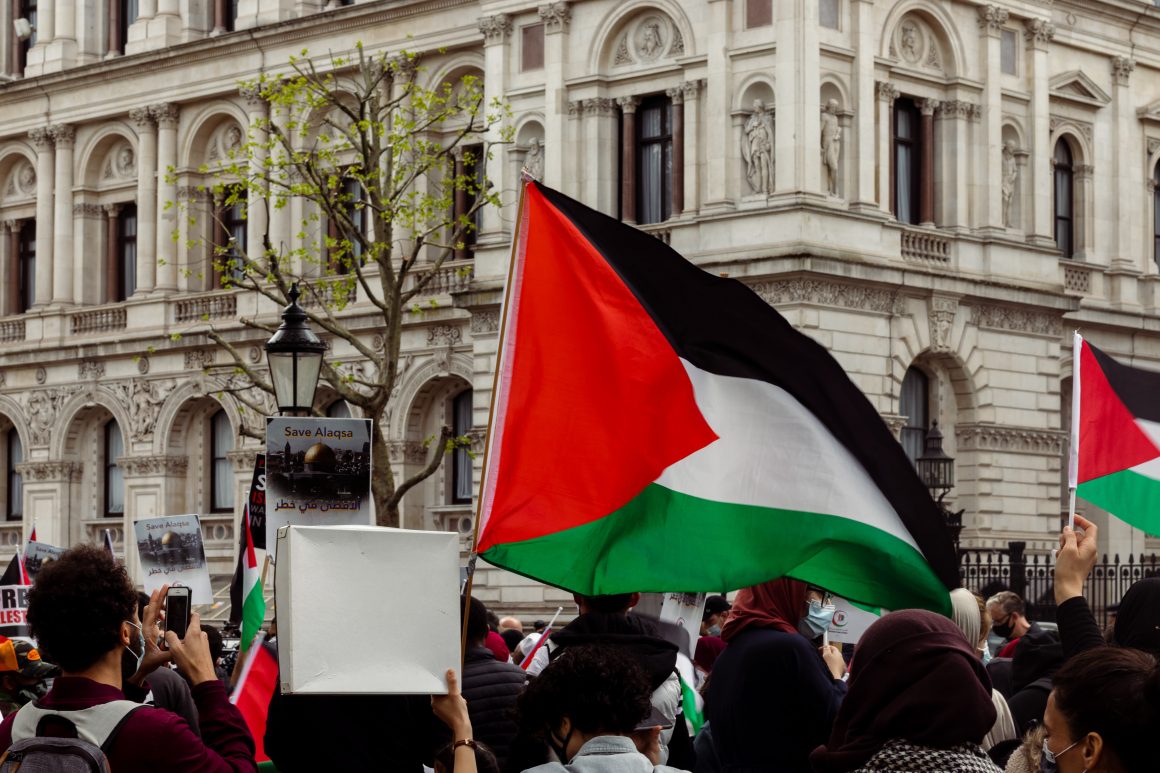
Students speak out on #FreePalestine movement and importance of staying informed
By Sophia Lopez, May 29 2021—
Since the raid of the masjid Al-Aqsa by the Israeli military on April 13 this year, Palestine has faced forced evictions, bombings and many other acts of inhumane violence. People across the globe have come together to show their support for the #FreePalestine movement, and call out their own countries for not doing enough to help the Palestinian population.
Angelina Hajji, zoology major at the University of Calgary, and Yara Abou Fayeh, a recent dental hygiene graduate from the University of British Columbia, are two young adults actively participating in protests and raising awareness of the #FreePalestine movement.
In a conversation with the Gauntlet, Hajji talked about how staying well informed about a situation is the first step to making a difference.
“As both a human and animal rights advocate having founded anti-poaching, refugee and humanitarian fundraisers, I believe education and awareness are key to breaking barriers and instilling positive change,” she said.
The United Nations (UN) acknowledges and has publicly expressed how the process of annexation is illegal, and yet Palestine is facing the detrimental effects of such a process. Hajji discussed how the Israeli government has been, “denying Palestinians basic human-rights such as clean water, food, medicine [and] humanitarian relief.”
“There is so much wrong that has happened and continues happening and at its basis, is ethnic cleansing, apartheid and a genocide in action,” she said.
When asked about how people were involving religion as a way to justify certain opinions on the crisis, Hajji pointed out that people need to remember that this situation is not one influenced by religion or religious practices.
“Sides utilizing religion can often misinform and distort the narrative away from what has been acknowledged as a genocide and ethnic cleansing. No Abrahimic religion preaches violence and as a Muslim I was raised to love and accept everyone,” she said. “It is a considerably misinformed notion that this is Muslims versus Jews.”
Many Canadians also believe it is necessary to not choose sides at this time. When asked where she stands, Fayeh mentioned how she didn’t agree with this idea and couldn’t comprehend how people were not seeing the clear injustices occurring towards innocent people in Palestine.
“As a Palestinian, I believe that our government is not even doing the minimum to address the escalating violence and the death happening in Palestine,” said Fayeh. “I completely disagree with the idea of being neutral. I actually cannot understand how someone can even be neutral in a case where one side is a known military power and the other are unarmed civilians. If you speak up about injustices faced by minorities around the world, you definitely should be speaking up about the injustices happening against Palestinians,” she added.
Hajji expressed how crucial it is for people outside of Palestine to assist in raising awareness of the recent criminal acts occurring in the country, even if we aren’t necessarily being affected by it in our personal lives.
“As we reside in a country that promotes both peace and diversity, we come from a place of privilege and cannot turn our back on those who are unjustly persecuted — we are all equal,” she said.
“A human’s life or that of a child’s does not decrease in value simply because you cannot see it or because it is overseas,” Hajji said. “It is our obligation to protect vulnerable populations and ensure humanitarian rights are followed — appeasement of illegal warfare and war crimes such as using white-phosphorus bombs, allows the spread of supremacy and inevitably enables the massacre of innocent people.”
Hajji added to her earlier point of being well informed when asked how people can contribute to raising awareness and participate in the #FreePalestine movement. She said that we must continue to be active in events such as protests and signing petitions.
“As the media continues to censor us, it is essential that every individual ensures to spread first-hand accounts, videos and images from Palestine which provide the truth behind what is going on. It is very important to ensure your friends and family are informed on the issue — many people are not aware, and we can have a great influence on those around us. This is about spreading peace and restoring an oppressed people’s rights,” said Hajji. “Stay up to date and keep pushing the movement.”
Fayeh wants to let people know that regardless if the media decides to censor any activism online, that we need to keep sharing and informing the public on the issue at hand.
“This is much greater than some small political dispute. This is years of oppression by an apartheid regime that is instilling hate and manipulating the rest of the world with its misleading rhetoric. Palestinians do not have a voice,” said Fayeh. “Israel is doing whatever is in its power to prevent the truth from surfacing, and it is punishing the people who do speak up. We have the power to help the truth come out and hold the Israeli government for its crimes against the people of Palestine.”
To conclude, Hajji stated how supporting the movement during this time is advocating for peace between Israel and Palestine.
“This is about spreading community, spreading peace and becoming united — take a firm stance against any wrong in this world,” she said.
To find out more about upcoming protests, such as the march on May 30 at 5 p.m. at the Olympic Plaza in downtown Calgary, visit @msaucalgary and @freepalestinecalgary on Instagram. To reach out to Hajji personally for more information, visit her Instagram page @angeiiro.
